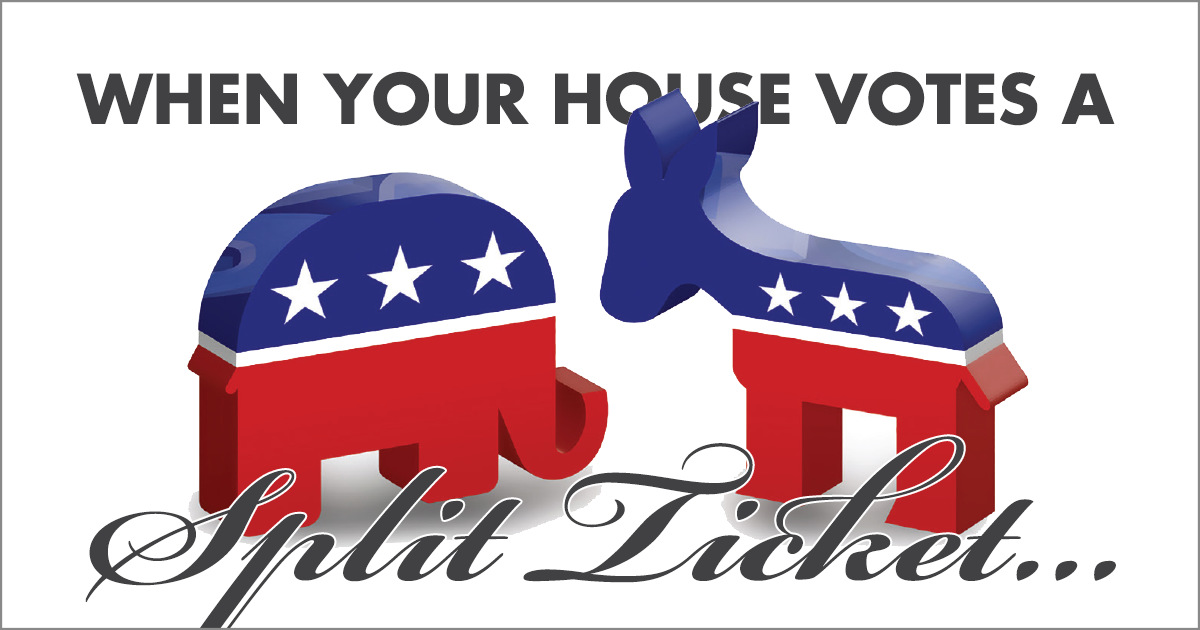Abraham Lincoln once said, "A house divided against itself cannot stand." In this—and any—election season, there are plenty of divided houses. Competing bumper stickers and yard signs give evidence of the range of opinions existing under one roof. So, what do you do when you lean "red" and your spouse, children, in-laws, et cetera, are "blue"?
Set boundaries, and respect them. For example: Do not forward a political "funny" to everyone in your e-mail contacts. While you may think it's hilarious, those of a different political leaning may find it offensive. Likewise, you could ask your friends and family to refrain from forwarding political material to you.
Avoid sharing political posts. Do you use Facebook or other social media platforms to stay in touch with friends and family? Your friends and family want to see pictures of your vacation, beautiful wedding, and adorable new infant or grandbaby—not the latest from Fox News or The Huffington Post. If they want to see those things, they'll subscribe to them.
Don't take the bait, and don't offer any. You probably know with whom you can engage in friendly debate and intelligent conversation, and with whom any discussion of politics will degenerate into an intimidation match. ("You must be crazy!" and "Who brainwashed you?" were two of my grandma's favorite phrases when it came to talking politics, so we talked about cooking, instead.) If you can have a friendly conversation, great. If you know it will get ugly, don't go there in the first place.
Avoid the usual suspects. Speaking of bait, if you must watch or listen to the news together, steer clear of Bill O'Reilly, Rachel Maddow, and anyone else you could obviously label as a conservative or a liberal, given how they report the news.
Instead of arguing, listen. Try to understand why people see an issue from a particular perspective. Instead of expending your energy trying to convince them to see things your way, try to understand how they came to their conclusions. Listening to their reasoning doesn't mean that you're adopting those reasons as your own—and it builds relationships, instead of breaking them down.
Keep in mind that even though we may have drastically different views about the path to take to do what's best for our country, those who have strong political beliefs do so because they care about the state of our country. And that's a good thing.
Written by Jennifer Reynolds, staff writer for West Michigan Woman.




